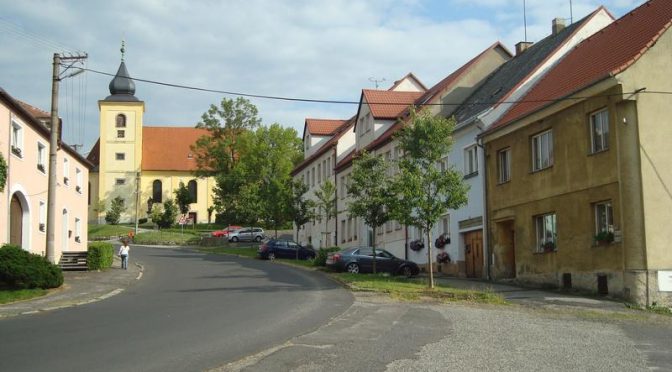
Changes in Cultural Landscape of Czech-German Borderlands since 1918 until Nowadays: The Case of the Dolní Žandov Commune by Karolina Ćwiek-Rogalska
When & Where: 15 March 2018, 4:30 pm, CEFRES Library
Organizer: Ania Gnot (U. of Opole, ÚČL AV ČR, associate PhD fellow at CEFRES)
Discussant: Paul Bauer (FSV UK)
Language: English
In her book, Karolina Ćwiek-Rogalska deals with the changes of the cultural landscape of the Czech Borderlands, based on the example of the Dolní Žandov (formerly Unter Sandau) commune. In a significant way, the landscape was co-created by the German-speaking inhabitants who, after 1945, practically disappeared from there, since they were displaced. This absence triggered changes in such areas as culture, society and landscape. Karolina Ćwiek-Rogalska’s research is about the people who settled—or were settled—in the Dolní Žandov commune and the people who used to live there before 1945.
About the author
Karolina Ćwiek-Rogalska trained in cultural studies, slavist studies and ethnology. Her research interests include the anthropology of landscape, cultural borderlands and forced displacement in Poland and Czechoslovakia after 1945. She also uses “hauntology” as a tool of anthropological research. She currently works as an assistant professor at the Institute of Slavic Studies of the Polish Academy of Sciences in Warsaw. Her first book Zapamiętane w krajobrazie. Karjobraz czesko-niemieckiego pogranicza w czasach przemian was published in 2017. She now conducts a new project called „Recycling of memory. German War Memorials in Central Pomerania region”, financed by the National Science Centre of Poland.
Contact: karolina.rogalska@ispan.waw.pl
Karolina Ćwiek-Rogalska : Zapamiętane w krajobrazie. Krajobraz czesko-niemieckiego pogranicza w czasach przemian, Scholar, 2017.
Find more information about the book here
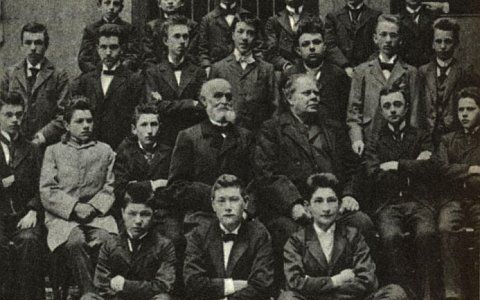
A lecture by Enrico Lucca (Simon Dubnow Institute, Leipzig) in the frame of the seminar on Modern Jewish History of the Institute of Contemporary History (AV ČR) and CEFRES in partnership with the Masaryk Institute (AV ČR).
Where: CEFRES library, Na Florenci 3, 110 00 Prague 1
When: from 5 pm to 6:30 pm
Language: English
Franz Kafka (1883-1924) and Hugo Bergman (1883-1975) have been classmates and very close friends until their first years of university. Yet, Bergman started to write on Kafka only very late in his life, dedicating to him a number of essays–both in Hebrew and in German–scattered in small journals and published in the last years of his life. By analyzing both the story and the vicissitudes of their friendship as well as Bergman’s later insights into Kafka’s work, the talk will try to get a sense of the meaning of Kafka and his figure in Bergman’s intellectual biography.
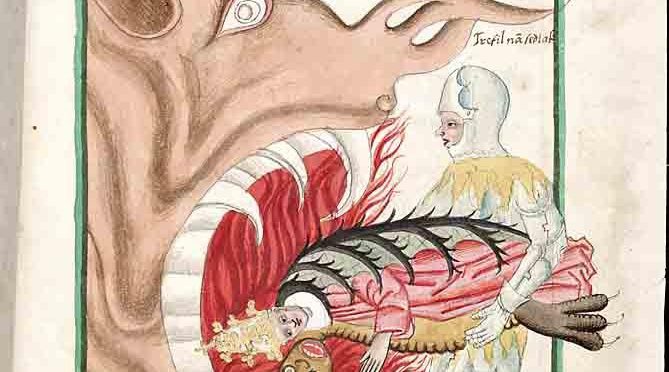
Second session of 2018 common epistemological seminar of CEFRES and IMS FSV UK led by
Martin Pjecha (CEFRES – CEU)
Human Agency and Apocalyptic Violence
Where: CEFRES library – Na Florenci 3, 110 00 Prague 1
When: Thursday 08.03.2018 from 3:30 pm to 5 pm
Language: English
Text:
- Matthias Riedl, “Terrorism as ‘Apocalyptic Violence’ On the Meaning, and Validity of a New Analytical Category”, Social Imaginaries 3.2 (2017), pp. 77-107.
Read more about the seminar!
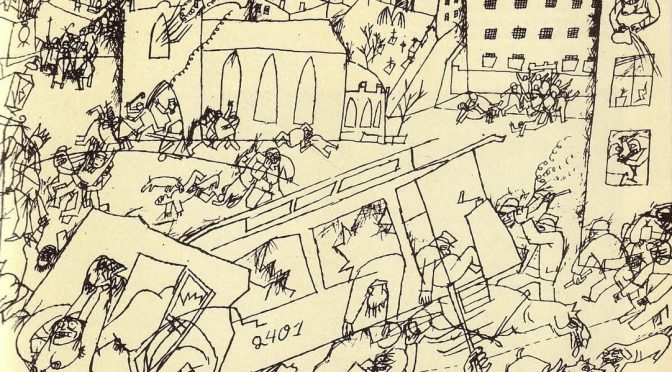
First session of Summer semester common epistemological seminar of CEFRES and IMS FSV UK led by
Mihai-Dan Cirjan (CEFRES – CEU)
Framing the ‘Crisis’: Between Vernacular Conflicts and Expert Disputes
Where: CEFRES library – Na Florenci 3, 110 00 Prague 1
When: Thursday 22.02.2018 from 3:30 pm to 5 pm
Language: English
Text :
Guyer, Jane I. “Terms of Debate versus Words in Circulation: Some Rhetorics of the Crisis.” in Carrier, James G. (ed.), A Handbook of Economic Anthropology, Second Edition. Edward Elgar Publishing, 2012, 612-626.
Read more about the seminar!
Illustration: Pandemonium by George Grosz, 1914
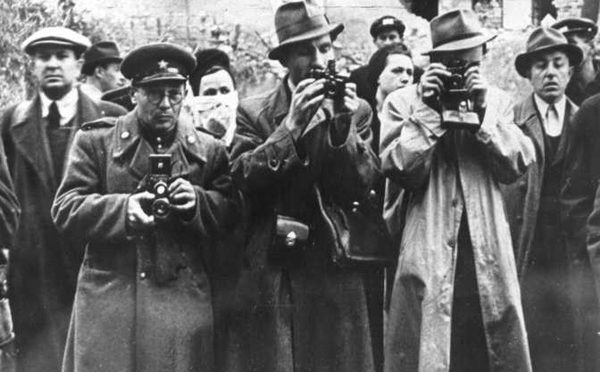
 Annette Wieviorka is probably one of the famous French historians on the Holocaust and a specialist of the history of Jews in France. A distinguished researcher of French National Research Center (CNRS), she just published 1945, la découverte (Le Seuil, 2017), dealing with the discovery of the Nazi concentration camps in April and May 1945 by the Allies through the testimonies of two war reporters. Among her books translated into English, one will read her groundbreaking The Era of the Witness (Cornell, 2006), along with Auschwitz Explained to My Child (Marlowe & Co, 2002). She talks about her personal trajectory in a series of interviews conducted by Séverine Nikel published in French under the title L’heure d’exactitude (2011). Annette Wieviorka will give her insight on the figure of the witness at the time of WWII during her lecture in Prague.
Annette Wieviorka is probably one of the famous French historians on the Holocaust and a specialist of the history of Jews in France. A distinguished researcher of French National Research Center (CNRS), she just published 1945, la découverte (Le Seuil, 2017), dealing with the discovery of the Nazi concentration camps in April and May 1945 by the Allies through the testimonies of two war reporters. Among her books translated into English, one will read her groundbreaking The Era of the Witness (Cornell, 2006), along with Auschwitz Explained to My Child (Marlowe & Co, 2002). She talks about her personal trajectory in a series of interviews conducted by Séverine Nikel published in French under the title L’heure d’exactitude (2011). Annette Wieviorka will give her insight on the figure of the witness at the time of WWII during her lecture in Prague.
Find out more about Annette Wieviorka here.
Venue: Faculty of Arts of the Charles University, Nám. J. Palacha, room 200
Horaires : 5:30-7:30
Organizers: Kateřina Čapková, Clara Royer and Milan Žonca
Partners: CEFRES, Prague Center for Jewish Studies (FF UK) and the Institute of Contemporary History of the Czech Academy of Sciences. With the support of the French Institute of Prague
Language: French with simultaneous translation in Czech
Illustration: “Taking photos of the victims in the ghetto (Budapest, 19. January 1945)”. Source: http://phdn.org/archives/holocaust-history.org/hungarian-photos/
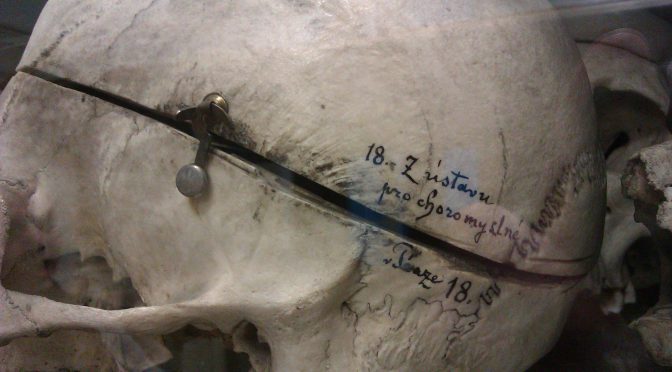
Interdisciplinary Workshop
Organizers: Kateřina Kolářová (Faculty of Humanities, Charles University, Prague – FHS UK), Martina Winkler (Christian-Albrechts-Universität, Kiel), Filip Herza (FHS UK), Kamila Šimandlová (FHS UK)
When: 17. 2. 2018
Where: Akademické Centrum, Husova 4a, Prague 1
Language: Czech/English
Workshop is organized within the project “(Post)Socialist Modernity and social and cultural politics of disability” jointly funded by the Czech Science Foundation (GAČR) and Deutsche Forschungsgemeinschaft (DFG), held by the Faculty of Humanities Charles University. The event is co-hosted by CEFRES and the Institute of Sociology of the Czech Academy of Sciences.
Programme
9–9:30 am Welcome
9:30–10 am : Opening of the symposium, Kateřina Kolářová.
10–11:45 am Panel I
- Martina Winkler: Disability and Childhood in Czechoslovak Media, 1960s-1989 (Christian-Albrechts-Universität zu Kiel) (in English)
- Marek Fapšo, Jan Randák: To What Extent Was the So-Called “Special” Socialist Teaching Really Socialist? (Institute of Czech History, Faculty of Literature UK)
- Šimon Charvát: “Mental Disability Is a Time Bomb.” The Discursive Approach to “Mental Disability” in the Czech Lands During the Second Half of the XIXth Century (Chair of General Anthropology, FHS UK)
- Maria-Lena Fassig: First Thoughts on Definition of Disability in the Historical Context of Socialist Czechoslovakia (Christian-Albrechts-Universität zu Kiel) (in English)
11:45 – 12:45 Lunch
12:45 – 2:30 pm Panel II
- Radek Carboch, Dana Hradcová, Dita Jahodová, Michal Synek: Between Silence and Translation. Ethnography of Cognitive Disability (Research center for longevity and long-terme care, FHS UK; Chair of Sociology, FSV MUNI Brno).
- Daniela Komanická: Reconceptualizing Labor and Care Through the Active Participation of the User of Self-Determined Personal Assistance in the Service (Chair of Anthropology, FHS UK).
- Ľubica Kobová: Vulnerability as an Ontological Condition and its Critical Reception (Chair of Gender Studies, FHS UK).
- Hana Porkertová: Disability as an Amalgam at the Crossroads Between Rhetorics and Materiality (Chair of Sociology, FSS MU).
2: 30 – 3:00 pm Coffee break
3:00 – 4:30 pm Panel III
- Petra Honová, Lucie Kondrátová, Dino Numerato: The Experience of the Patients and their Family Scrutinised by the Expertise of a Knowledge Society. The Case of the Psychiatric Care Reform (Chair of sociology, FSV UK; National Institute of Mental Health).
- Martin Fafejta: The Czech Community on Pedophilia (ČEPEK) and its Emancipatory Rhetorics (Chair of Sociology, Anthropology and Adult Learning, FF UP).
- Jiří Mertl: “I Never Tried That Before” … Psychological Assistance, Individual Responsibility and People Dismissed from Work (Research center for New Technologies, ZČU).
4:30 – 5 pm Conclusion of the symposium by Filip Herza
You can download the program of the conference here
and the abstracts of each contribution here.
See th argument of the conference.
For any question, please contact Kamila Šimandlová, simandlova[at]outlook.com







